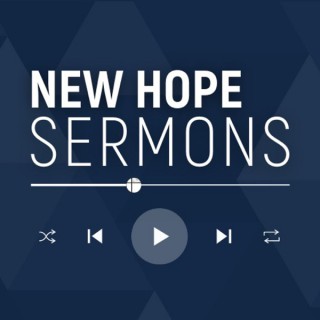Podcasts about image of god
- 3,100PODCASTS
- 5,092EPISODES
- 38mAVG DURATION
- 1DAILY NEW EPISODE
- Feb 23, 2026LATEST
POPULARITY
Categories
Best podcasts about image of god
Latest news about image of god
- Let Orthodoxy Fuel the Fight for Justice The Gospel Coalition - Feb 5, 2026
- I used to wonder what it truly meant to be made in the image of God. Creativity on Medium - Jan 28, 2026
- What Does the Bible Say About Transhumanism? Logos Bible Software Blog - Jan 17, 2026
- How pro-life leaders betray the one truth they can't afford to compromise The Blaze - Nov 30, 2025
- Forum: On the Image of God (Vern Poythress) CBMW - Nov 19, 2025
- 6 Implications of Being Made in the Image of God The Aquila Report - Aug 18, 2025
- Why He Rises or Falls—The Keys a Woman Holds Credo House Ministries - Jul 21, 2025
- Vatican Secretary for Protection of Minors: ‘Harming a Victim Is Harming the Image of God’ The Daily Register - Jun 23, 2025
- What Is the “Image of God” in Man? Roger E. Olson - Jun 19, 2025
- Why RFK Jr. Doesn't See the Image of God In Autistic People Sojourners Latest Articles - May 2, 2025
Latest podcast episodes about image of god
Now the word of the LORD came to Jonah the son of Amittai, saying, 2 “Arise, go to Nineveh, that great city, and call out against it, for their evil has come up before me.” 3 But Jonah rose to flee to Tarshish from the presence of the LORD. He went down to Joppa and found a ship going to Tarshish. So he paid the fare and went down into it, to go with them to Tarshish, away from the presence of the LORD.4 But the LORD hurled a great wind upon the sea, and there was a mighty tempest on the sea, so that the ship threatened to break up. 5 Then the mariners were afraid, and each cried out to his god. And they hurled the cargo that was in the ship into the sea to lighten it for them. But Jonah had gone down into the inner part of the ship and had lain down and was fast asleep. 6 So the captain came and said to him, “What do you mean, you sleeper? Arise, call out to your god! Perhaps the god will give a thought to us, that we may not perish.”7 And they said to one another, “Come, let us cast lots, that we may know on whose account this evil has come upon us.” So they cast lots, and the lot fell on Jonah. 8 Then they said to him, “Tell us on whose account this evil has come upon us. What is your occupation? And where do you come from? What is your country? And of what people are you?” 9 And he said to them, “I am a Hebrew, and I fear the LORD, the God of heaven, who made the sea and the dry land.” 10 Then the men were exceedingly afraid and said to him, “What is this that you have done!” For the men knew that he was fleeing from the presence of the LORD, because he had told them.11 Then they said to him, “What shall we do to you, that the sea may quiet down for us?” For the sea grew more and more tempestuous. 12 He said to them, “Pick me up and hurl me into the sea; then the sea will quiet down for you, for I know it is because of me that this great tempest has come upon you.” 13 Nevertheless, the men rowed hard to get back to dry land, but they could not, for the sea grew more and more tempestuous against them. 14 Therefore they called out to the LORD, “O LORD, let us not perish for this man's life, and lay not on us innocent blood, for you, O LORD, have done as it pleased you.” 15 So they picked up Jonah and hurled him into the sea, and the sea ceased from its raging. 16 Then the men feared the LORD exceedingly, and they offered a sacrifice to the LORD and made vows.17 And the LORD appointed a great fish to swallow up Jonah. And Jonah was in the belly of the fish three days and three nights.
22 Feb || Imago Dei: Made in the Image of God || Kingdom Ambassadors Week 4
What does it mean that we're created "in the image of God"? What implications does this have for our lives?
Day 51: Unity of Soul and Body (2026)
The soul and the body “are not two natures united, but rather their union forms a single nature.” The Catechism introduces us to this profound mystery and begins to unpack our nature as a body and as a soul. Fr. Mike shows us how so much pain and confusion in modern times—and indeed throughout history—stems from an attempt to separate these two inseparable parts of our being. Today's readings are Catechism paragraphs 362-368. This episode has been found to be in conformity with the Catechism by the Institute on the Catechism, under the Subcommittee on the Catechism, USCCB. For the complete reading plan, visit ascensionpress.com/ciy Please note: The Catechism of the Catholic Church contains adult themes that may not be suitable for children - parental discretion is advised.
Day 50: The Dignity of Man (2026)
“God created man in his own image, in the image of God he created him, male and female he created them” (Genesis 1:27). The Catechism teaches us about man's God-given dignity and unique place in creation. Fr. Mike explains the unity that exists between all persons, and how this necessitates a “law of human solidarity and charity.” Today's readings are Catechism paragraphs 355-361. This episode has been found to be in conformity with the Catechism by the Institute on the Catechism, under the Subcommittee on the Catechism, USCCB. For the complete reading plan, visit ascensionpress.com/ciy Please note: The Catechism of the Catholic Church contains adult themes that may not be suitable for children - parental discretion is advised.
Rev. Ron Clegg
Rev. Ron Clegg
Another Look at Genesis: Creation, the Temple, and the Image of God
Genesis chapter one is the springboard to many deep debates both within Christendom and in the "science versus faith" culture wars. For those who worship Yahweh as the creator of the heavens and the earth, science rightly held can be nothing but faith affirming. Was the earth created in six days? Are the times of literal importance or better understood in their literary significance? Join us as we take a fresh look at the beginning to better understand God's desires for us today and our destiny in eternity.
Genesis 1:26-31 The post Genesis: Image of God appeared first on Redemption's Hill Church.
Humanity's creation in the "Image of God" is a central belief of our faith. But what exactly is "the Image of God?" And what happens when we let go of our status as His image bearers? Today pastor Dan unpacks the beauty and power of "Imago Dei." -- GIVE: Visit www.connectcalgary.ca/give to help share #LifeOverflowing across Canada.
The Image Of God -The Foundation Of God's Mission | Steve Robertson | February 15
Genesis 1:26-28
Genesis 1:26-31 - Pastor Jay - Sunday, February 15, 2026
Made in the Image of God - Paul Williams (Genesis 2)
In this episode we feature a talk by Paul Williams on Genesis 2. It's a talk concerning God's creation of men and women as HIs image bearers. Questions answered in this episode: - What is the image of God? - Are men and women different? - Why is not good for man to be alone? The Bible Matters Podcast is funded entirely by the generous donations of its listeners. If you would like to become a financial partner with us on this journey, you can give to the project on this link: https://linktr.ee/BibleMatters Got a question about Genesis? Send us a message and we'll try and answer it in a video! To contact us, email office@biblematters.org
A Storied and Spiritually Formed People: Image of God // Joshua Little (2/8/26)
The Image of God: Made for Ultimate Beauty
Genesis 1:26-28 Wow! Exploring the Beauty of God Donate to Support The Journey
James' words on favoritism prompt us to take a look in the mirror.
How do we measure the worth of someone? Jesus told a story of a beat up, left for dead guy and an unsuspecting rescuer that reminds us of the worth and dignity of all who are made in the image of God. Check out Pastor Kevin's sermon, IMAGE OF GOD, here.
The Image of God: Made for Ultimate Beauty - Part B
Genesis 1:26-28 Wow! Exploring the Beauty of God Donate to Support The Journey
Manufacturing in the Image of God w/ Lucas Botkin: The J. Burden Show Ep. 417
LB: https://adaptivdefense.com/ https://www.youtube.com/@Lucas_Botkin/videos https://x.com/LucasBotkin J: https://findmyfrens.net/jburden/ Buy me a coffee: https://www.buymeacoffee.com/j.burden Substack: https://substack.com/@jburden Patreon: https://patreon.com/Jburden GUMROAD: https://radiofreechicago.gumroad.com/l/ucduc Axios: https://axios-remote-fitness-coaching.kit.com/affiliate ETH: 0xB06aF86d23B9304818729abfe02c07513e68Cb70 BTC: 33xLknSCeXFkpFsXRRMqYjGu43x14X1iEt
The Image of God: Made for Ultimate Beauty - Part A
Genesis 1:26-28 Wow! Exploring the Beauty of God Donate to Support The Journey
Foundations | The Image of God | Dr. Jonathan Spencer
Genesis 1:24-311. God made you ON purpose and FOR a purpose2. Sin has DISTORTED, but not DESTROYED, God's image in us.3. Jesus IS the image of God4. Jesus CAN restore the image of God in YOU5. Our restoration will be COMPLETE when Jesus returns6. Jesus can TRANSFORM your life
The Image of God Pt. 2 | Genesis | Week 4
As we continue through our series with Genesis 1:28-2:20, Rob digs deeper into what it means to be image bearers of God, cultivating and stewarding well what God has entrusted to us as His creation.
Pastor Mike Talks about our image of God.
Episode 255: 1-28 Made in the Image of God
In today's HMS Fellowship Luncheon, MRO Chaplain Donnie Floyd speaks a message to us entitled "Made in the Image of God." He reminds us with scripture that we are all made in God's Image, so that should play a role in how we conduct our lives with each other! Take a listen and enjoy!
What gives human life its value—and why does it matter how we treat one another?In this powerful episode of the Christ Alone Podcast, Angie and Stevens explore the profound biblical truth that humanity is created in the image of God (Imago Dei). This foundational doctrine shapes how we understand human dignity, identity, relationships, and moral responsibility—and it has far-reaching implications for how we live out our faith in a fractured world.The conversation unpacks what it truly means to be an image bearer, affirming that every person—regardless of background, belief, or circumstance—possesses inherent worth. Angie and Stevens discuss how this truth reshapes the way we see others, influences how men and women uniquely reflect God's design, and underscores the immeasurable value of unborn life.Rather than remaining abstract theology, this episode challenges listeners to put belief into action—living with love, grace, humility, and accountability as visible reflections of God's character.
Dr. Jeff Myers and Dr. Kathy Koch join John Stonestreet in discussing what it means to raise gender confident kids, and how their new book can help equip parents for hard questions. ____________ Get your free resource while supplies last at genderconfidentkids.com
Genesis 1:26-31 - Week 3 - The Image of God - Kevin Maloney
God created every person in His image to reflect His glory and live in relationship with Him, but sin has distorted this sacred design, leaving humanity captive to idolatry and self-worship. Jesus liberates us and progressively renews us to reflect God's character in how we love, serve, and worship—becoming truly free as we become what we were always meant to be.
God created every person in His image to reflect His glory and live in relationship with Him, but sin has distorted this sacred design, leaving humanity captive to idolatry and self-worship. Jesus liberates us and progressively renews us to reflect God's character in how we love, serve, and worship—becoming truly free as we become what we were always meant to be.
Sunday Sermon: Who Do You Say I Am? - Christ The Image of God
This morning, we will continue our sermon series, Who Do You Say That I Am?, a six-week exploration of who Christians confess Jesus the Christ to be—and why that confession still matters for our lives and our world. This week's sermon, “Christ the Image of God,” draws from Colossians 1:15–20, a soaring passage that invites us to see Jesus as the clearest picture of God's heart and humanity's true calling. Together, we'll reflect on what it means to bear God's image and how Christ restores that image in us and in the world. Sermon on Colossians 1:15-20, delivered by the Reverend David J. Powers on January 18th, 2026.
Treasuring Your Wife Part 1: In The Beginning, Woman Made In The Image Of God - English only.
Congregation of the Living Word, a Messianic Jewish Congregation
Treasuring Your Wife Part 1: In The Beginning, Woman Made In The Image Of God - English only. The Scriptures tell us that both men and women are made in the image of God. How does the Bible describe women as being made in His image? This is a rebroadcast of a July 17, 2004 sermon from our archives.
The Image of God Pt. 1 | Genesis | Week 3
Dr. Jody Owens from Johnson University joins us this Sunday as we read Genesis 1:26-27, and preaches on what it means to be made in the image of God. We were created to mirror the Creator, but there are other things that compete for what we worship. Do you choose the life of reflecting Him and His glory? Or the idols that parody that glory?
Where did we come from? What are we here to do? Who are we? These are great questions, and Psalm 8 succinctly answers them through a beautiful poem. Join us as we work through it this morning.
EP 2 - Theology Thursdays with [Pastor] Thom: Image of God
This is Episode 2 of our Theology Thursdays series. Covering the various views of the Image of God.
One of the blessings of being Christians today is that, unlike people all around us, we know who we are and why we're here. Today, Sinclair Ferguson explains why a denial of God's existence inevitably results in an identity crisis. Read the transcript: https://ligonier.org/podcasts/things-unseen-with-sinclair-ferguson/our-identity-the-image-of-god/ A donor-supported outreach of Ligonier Ministries. Donate: https://donate.ligonier.org/ Explore all of our podcasts: https://www.ligonier.org/podcasts
One of the blessings of being Christians today is that, unlike people all around us, we know who we are and why we're here. Today, Sinclair Ferguson explains why a denial of God's existence inevitably results in an identity crisis. Read the transcript: https://ligonier.org/podcasts/things-unseen-with-sinclair-ferguson/our-identity-the-image-of-god/ A donor-supported outreach of Ligonier Ministries. Donate: https://donate.ligonier.org/ Explore all of our podcasts: https://www.ligonier.org/podcasts
One of the blessings of being Christians today is that, unlike people all around us, we know who we are and why we're here. Today, Sinclair Ferguson explains why a denial of God's existence inevitably results in an identity crisis. Read the transcript: https://ligonier.org/podcasts/things-unseen-with-sinclair-ferguson/our-identity-the-image-of-god/ A donor-supported outreach of Ligonier Ministries. Donate: https://donate.ligonier.org/ Explore all of our podcasts: https://www.ligonier.org/podcasts
A Quick Reminder- “The Image Of God” (Genesis 1:26-27)
The image of God is our created purpose—the very reason we exist. But Genesis 3 records humanity's fall from this reality. So what does it mean now to live out our purpose? How can fallen man reflect the image of God today? Join Kelly as he looks to scripture for the answers to these questions.www.instagram.com/thehishillpodcast/www.hishill.orgkelly@hishill.org
Humans are Sinful and Fallen: Are We Still in the Image of God?
Humans are unique from animals (we don't accept human evolution) and machines (AI and robots), but after Adam sinned, was he, and are we, still made in the image of God? What did we lose in the Fall? Join me for today's Daily World & Prayer to learn more.Scripture Used in Today's MessageGenesis 9:6James 3:8-10To find Tom on Instagram, Facebook, TiKTok, and elsewhere, go to linktr.ee/tomthepreacher
anthemchicago.org
Bible Classes / Speaker:Michael Lindsey The post Genesis 1:1-2:3 – The Image of God appeared first on Woodland Hills Church of Christ.
Imago Dei: Created to Reflect the Image of God - Genesis 1:26-27; 2 Corinthians 5:17
Pastor Jay Song
In this episode of Pray the Word on Genesis 1:27, David Platt explains how man was fearfully and wonderfully made in God's image.Explore more content from Radical.
Immigration and the Image of God; Exposing Transgenderism; and Is Nick Fuentes Radical Feminism for Men?
Recent news headlines involving immigrants are causing a reaction that isn't very Christian. Information continues to reveal the transgender moment that took over the world over the last few years. And what's behind Nick Fuentes' popularity? Segment 1 – Immigration and Image of God MSN: A sprawling fraud scandal puts Minnesota's Somali community in the spotlight Fox News: Who is the DC National Guardsmen shooting suspect? What to know about Afghan national Rahmanullah Lakanwal Segment 2 – The Transgender Scam The Free Press: 'We're All Just Winging It': What the Gender Doctors Say in Private ADF: ADF attorney, Virginia teacher to testify before US House subcommittee on harmful 'secret social transition' policies Interesting Times with Russ Douthat Segment 3 – Is Nick Fuentes Radical Feminism for Men? X Post on Nick Fuentes Rod Dreher's Substack: What I Saw And Heard In Washington Questions and Comments The Atlantic: Canada is Killing Itself Joni and Friends ______________________ Make a gift by December 31 to help us form families, churches, and schools in the Christian worldview in 2026! Thanks to a generous grant, your gift will be doubled, up to $500,000. Give today at colsoncenter.org/december. Watch Truth Rising, now available at truthrising.com/colson.
Why Were Humans Created In The Image of God? w/ Jordan Peterson
Why Were Humans Created In The Image of God? w/ Jordan Peterson Once a year, every year, we give you our best deal of the year. And it's happening right now. DailyWire+ memberships are 50% off. https://getdwplus.com/blackfridayBENYT - - - Click here to join the member-exclusive portion of my show: https://bit.ly/3WDjgHE - - - Facts Don't Care About Your Feelings - - - Today's Sponsors: Birch Gold - Text BEN to 989898 for your free information kit. Grand Canyon University - Find your purpose at Grand Canyon University. Visit https://gcu.edu/myoffer to see the scholarships you may qualify for! Policygenius - Head to https://policygenius.com/SHAPIRO to get your free life insurance quotes and see how much you could save. Lean (Brickhouse Nutrition) - Visit https://brickhousesale.com to save 30% on Black Friday deals. Daily Wire Shop - Go to https://dailywire.com/shop today. - - - DailyWire+: Once a year, every year, we give you our best deal of the year. And it's happening right now. DailyWire+ memberships are 50% off. https://dailywire.com/blackfriday Finally, Friendly Fire is here! No moderator, no safe words. Now available at https://www.dailywire.com/show/friendly-fire Get your Ben Shapiro merch here: https://bit.ly/3TAu2cw - - - Socials: Follow on Twitter: https://bit.ly/3cXUn53 Follow on Instagram: https://bit.ly/3QtuibJ Follow on Facebook: https://bit.ly/3TTirqd Subscribe on YouTube: https://bit.ly/3RPyBiB - - - Privacy Policy: https://www.dailywire.com/privacy Learn more about your ad choices. Visit podcastchoices.com/adchoices
































































































































































































